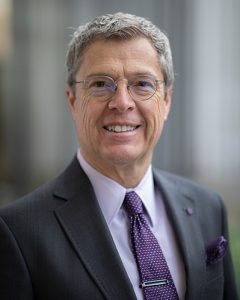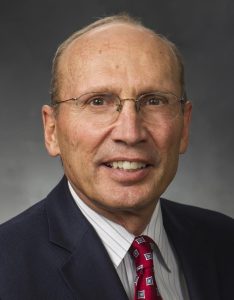 Brett G. Scharffs is Rex E. Lee Chair and Professor of Law at Brigham Young University’s J. Reuben Clark Law School and Director of the Law School’s International Center for Law and Religion Studies. He received his JD from Yale Law School, where he was Senior Editor of the Yale Law Journal. He has previously taught at Yale University and the George Washington University Law School. Scharffs has been a visiting professor at Central European University in Budapest, University of Adelaide School of Law in Australia, and Doshisha University in Kyoto. He has helped organize a Certificate Training Program on Religion and the Rule of Law in Beijing in partnership with Peking University Law School’s Center for Administrative and Constitutional Law. He also co-organizes similar programs in Vietnam, Myanmar, and Uzbekistan. He has been working to develop a masters-level course on Shari’a and Human Rights with two universities in Indonesia. Scharffs has written more than 100 articles and book chapters and has made more than 300 scholarly presentations in 30 countries. His field-creating casebook, Law and Religion: National, International, and Comparative Perspectives (co-authored with W. Cole Durham, Jr.) was published by Wolters Kluwer in 2009, with an extensively revised and updated second edition appearing in January 2019. Scharffs was interviewed by Dmytro Vovk
Brett G. Scharffs is Rex E. Lee Chair and Professor of Law at Brigham Young University’s J. Reuben Clark Law School and Director of the Law School’s International Center for Law and Religion Studies. He received his JD from Yale Law School, where he was Senior Editor of the Yale Law Journal. He has previously taught at Yale University and the George Washington University Law School. Scharffs has been a visiting professor at Central European University in Budapest, University of Adelaide School of Law in Australia, and Doshisha University in Kyoto. He has helped organize a Certificate Training Program on Religion and the Rule of Law in Beijing in partnership with Peking University Law School’s Center for Administrative and Constitutional Law. He also co-organizes similar programs in Vietnam, Myanmar, and Uzbekistan. He has been working to develop a masters-level course on Shari’a and Human Rights with two universities in Indonesia. Scharffs has written more than 100 articles and book chapters and has made more than 300 scholarly presentations in 30 countries. His field-creating casebook, Law and Religion: National, International, and Comparative Perspectives (co-authored with W. Cole Durham, Jr.) was published by Wolters Kluwer in 2009, with an extensively revised and updated second edition appearing in January 2019. Scharffs was interviewed by Dmytro Vovk
IDEAS AND CONCEPTS BEHIND TEACHING LAW AND RELIGION
What is the place of law and religion courses in legal education?
Traditionally, U.S. law schools have treated law and religion as almost exclusively a course focused on the U.S. experience. There might be a little bit of history, but it focuses almost exclusively on the First Amendment and perhaps a few statutes, such as the Religious Freedom Restoration Act. In our teaching, we had been teaching international students quite frequently, including at Central European University. And what we wanted to do is teach a course that was fundamentally different. It would have a U.S. component, but that would only be one leg of a three-legged stool; the other two components would be international law and comparative law. So when we teach, we do include U.S. materials because they’re important, and they’re illustrative. We focus largely on the Free Exercise Clause and the Establishment Clause. The international human rights component focuses primarily on international human rights instruments, beginning with the Universal Declaration of Human Rights, the International Covenant on Civil and Political Rights, the European Convention on Human Rights, and then a lot of cases that have been decided by courts, principally the European Court on Human Rights, interpreting those treaties. For the comparative law piece, we focus on interesting counterparts to the U.S. and international materials, often cases dealing with the same subject matter. In our casebook, we have examples from more than 20 countries. These tend also to be based upon national constitutions and constitutional interpretations by courts, but also statutes and administrative practice. The centerpiece of our approach is believing that we all face a set of common problems. And we can learn to find better solutions in our own homes by being aware of the successes, the contrast, and the failures in other places and other legal regimes.
(more…)


